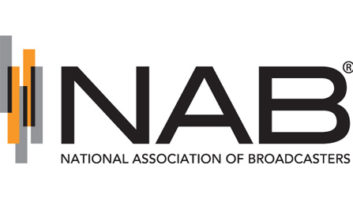Denver Waiver policy rescinded
Jan 1, 2005 12:00 PM, By Harry Martin
In a recent and unexpected move, the Media Bureau reversed course on the so-called “Denver Waiver.”
The Denver Waiver reflects an effort by the FCC to adjust its general FM allotment standards � developed for universal application to all situations across the country � in acknowledgment of the fact that some circumstances don’t fit conveniently into a universal mold. Under the Denver Waiver, the FCC waived Section 73.313(d) of its rules for a number of stations in the Denver area allowing them to exclude from their antenna HAAT calculations the four radials extending over the Rocky Mountains. The problem was that those pesky mountains messed up the validity of the FCC’s standard contour prediction method and, without the waiver, would have rendered the affected stations ineligible for full class C protection. The obvious answer: ignore the mountains.
Since the mid-1980s, the bureau has granted a half-dozen or so waivers under this policy, citing the unique conditions around Denver � the Rocky Mountains to the west and flat terrain toward the population centers to the east � as justification for providing full class C protection to stations whose antenna heights above average terrain are below class maxima.
Change in plans
However, when three Denver stations recently requested waivers in connection with minor modification applications they filed, the bureau denied the waivers and dismissed the applications.
The bureau based the about-face on the increased demand for FM spectrum since 1986, demand amply demonstrated by the number of parties objecting to the proposed modifications. Some of those objectors sought to provide new or improved service that would otherwise be precluded by grant of the requested waivers. Noting recent population growth in areas west of Denver, the bureau deemed new service to such population centers more important than continuing protection to Denver Waiver stations. According to the bureau, continuation of the Denver Waivers would frustrate Commission policy favoring additional service over protection of existing stations in excess of actual licensed station parameters.
A couple of other aspects of the decision are worth noting. First, the bureau’s decision was largely unanticipated, even, apparently, by the bureau itself; indeed, all three modification applications and waiver requests were originally granted by the bureau. These grants were rescinded when the bureau discovered that last minute informal objections had been filed to the applications by an environmental group and a competing broadcaster. After rescission of the grants, a slew of objections from other broadcasters with competing interests followed, objections that the bureau ultimately endorsed.
Second, while the bureau rejected most of the objections raised by the environmental group, it agreed with the group’s claim that the location of the subject towers near the historic Lariat Trail and the National Register-listed Buffalo Bill’s grave implicated the National Historic Preservation Act (NHPA). Via footnote, the bureau indicated that replacement of an existing structure constitutes an undertaking for purposes of the NHPA. However, reinforcing the view that size matters, the bureau further noted that construction of a replacement tower that does not �substantially increase the size of the existing tower� within stated parameters would not fall under the purview of the NHPA.
If there is a lesson to be learned here, it is that the FCC abhors waivers of its technical rules. The intricate system of rules, in this case affecting FM broadcast allocations, doesn’t work for everyone, but it provides a reliable and consistent means to deal with the thousands of applications the FCC is asked to process each year. Any variation is treated with hostility by the staff because it threatens to open the floodgates for other non-complying proposals. The Commission, which has a small staff of engineers and lawyers to begin with, simply doesn’t have the resources to review individual waiver requests. This may have had something to do with the demise of the Denver Waiver.
Dateline
Radio stations in Kansas, Nebraska and Oklahoma must file their renewal applications, biennial ownership reports and EEO program reports on or before Feb. 1, 2005. Feb. 1 also is the start date for pre-filing renewal announcements for stations in Texas.
Martin is president of the Federal Communications Bar Association and a member of Fletcher, Heald & Hildreth, Arlington, VA. E-mail[email protected].












